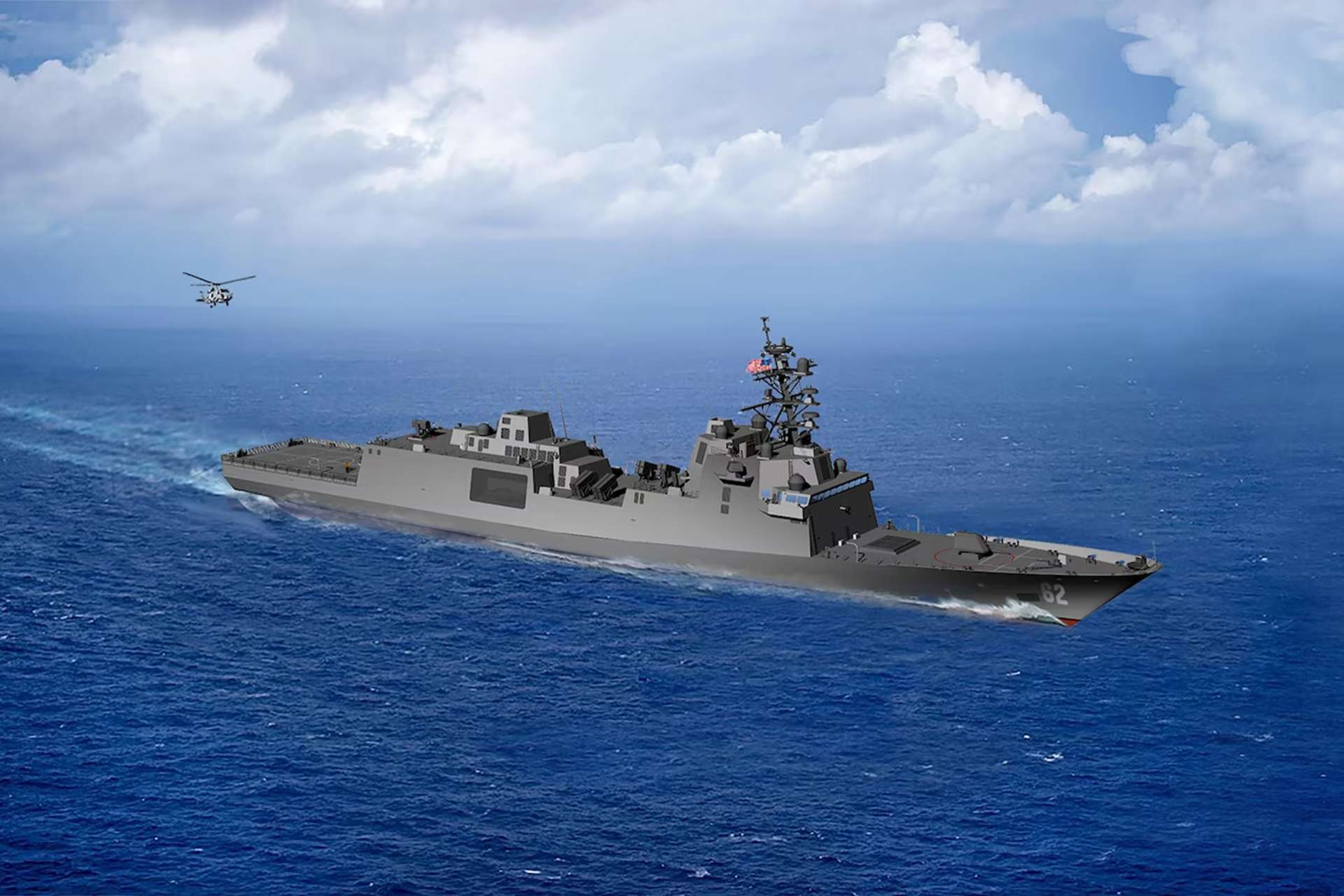Breaking News
President Elected Trump Pushes for US Navy Efficiency Highlights Constellation Frigate Delays.
In a interview published on January 6, 2025, U.S. President elected Donald Trump underscored the importance of revitalizing America’s naval shipbuilding program, singling out the Constellation-class frigates as a prime example of both success and missed opportunities. Trump criticized the current state of ship production, lamenting inefficiencies, design changes, and infrastructure shortfalls, while reflecting on the progress made during his administration to launch this pivotal program.
Follow Army Recognition on Google News at this link

Artist rendering of the future Constellation-class frigate USS Constellation. (Picture source: US DoD)
The Constellation-class frigates, born from Trump’s push for a stronger Navy, are designed to address critical gaps in fleet capabilities. These warships offer advanced capabilities for anti-submarine warfare, escort missions, and maritime security, serving as a versatile, cost-effective complement to the Navy’s larger destroyers.
The Constellation-class program, awarded to Fincantieri Marinette Marine in Wisconsin, was intended to showcase the ability of American shipyards to produce world-class naval vessels while strengthening the domestic industrial base.
While Trump praised the program’s early success, he expressed frustration over subsequent design changes introduced after his administration. He described how modifications, such as widening the hull, negatively impacted the frigates’ speed and efficiency.
The criticism reflects broader concerns about inefficiencies in the defense procurement system. Design changes, often made late in the process, disrupt construction timelines and inflate budgets. Trump’s remarks point to the need for discipline in adhering to original plans to ensure that programs like the Constellation-class can be delivered on time and within budget.
In the interview, Trump drew comparisons between modern shipbuilding and the wartime production capabilities of the United States during World War II. Highlighting the Bath Iron Works shipyard in Maine, which produced destroyers every 17 days during the war, Trump criticized the current pace of construction, where shipyards now average just 1.5 ships per year. He called for a return to efficiency.
Trump also pointed to the lack of adequate shipyard infrastructure as a major obstacle to fleet expansion. He described the closures of critical facilities under the current administration as detrimental to the Navy’s readiness, emphasizing the need for new docks, graving docks, and expanded production lines to support programs like the Constellation-class.
Investments in infrastructure are essential not only to meet immediate production goals but also to position the U.S. shipbuilding industry for long-term success. Trump suggested that outsourcing shipbuilding contracts to foreign builders could be a temporary measure to bridge the gap while domestic capabilities are restored.
The Navy’s push for a 330-ship fleet has gained renewed urgency as rival powers like China continue to expand their maritime capabilities. Trump highlighted the Constellation-class as a vital component of this effort, offering a scalable and versatile platform that can be deployed across multiple mission sets. As aging ships are retired and new threats emerge, the timely delivery of these frigates is critical to maintaining the Navy’s operational readiness.
























